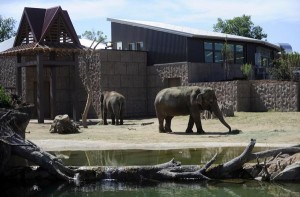The Straight Poop on Poop to Power- From the President- October 2015
The Denver Zoo ‘s plan to fire up a very expensive high temperature incinerator in the middle of the Denver Zoo, in the middle of City Park, in the middle of the City and County of Denver is up in smoke. In announcing that that it would not go forward with their plan, the Zoo cited numerous reasons, none of which, of course, included questions raised by Inter-Neighborhood Cooperation or INC’s request for Denver City Council to conduct an in depth, fact-finding hearing to shed light on this complicated issue of major importance.
Such a hearing would have likely determined that b urning trash and manure was an inappropriate use in Denver’s parks. It is an industrial use which better belongs in an industrial zoned area away from the Zoo’s 4000 animals, the Zoo’s visiting school children, City Park visitors and the thousands of residents who surround the Park.
urning trash and manure was an inappropriate use in Denver’s parks. It is an industrial use which better belongs in an industrial zoned area away from the Zoo’s 4000 animals, the Zoo’s visiting school children, City Park visitors and the thousands of residents who surround the Park.
In 2009, when the Denver Zoning Code was being revised, INC vigorously but unsuccessfully protested the provision which took Charter authority over zoning in Denver’s parks from City Council and transferred it to the Mayor through the Parks Manager (now Executive Director). In fact, INC expressed its concern that by taking away zoning powers from Council, “any recourse of citizens now in effect under the Charter with regard to zoning changes would be absent” and “delegation of such powers to the Manager of Parks and Recreation, was contrary to the language and intent of the Charter”.
In 2010, the Zoning Code was changed to include the following Section 9.3.4.1A.: “Permitted uses, number of uses and applicable use limitations in the OS-A Zone District, shall be determined by the manager of Park and Recreation.” Another way to say it is, the Mayor’s appointee serving at his pleasure, the Executive Director of Parks and Recreation, has unquestionable power to decide what can or can not be built in a park. In 2014, Denver Parks Manager, Lauri Dannemiller, unilaterally determined that an experimental, high temperature incinerator, which would produce tons of toxic gases and particles and will deposit them in and around the park, the zoo and the neighborhoods was a “park use”.
Thankfully, in halting the project, the Zoo did concede that if it ever were to complete the project, it would be located in an outlying area. However, it is clear from this experience that INC was right in 2009, and this provision of the Code which took power from Council and the people should be revisited.

Long time Denver Zoo elephants Dolly, left, and Mimi, in the new Toyota Elephant Passage at the Denver Zoo which will open this coming Friday, June 1st. They were offering sneak preview on on Wednesday, May 30, 2012. In the background is the Clayton F. Freiheit Elephant House. Cyrus McCrimmon, The Denver Post
Burning elephant poop to heat the elephant habitat and save money on the Zoo utility bill sounded too good to be true. And it was. Using an incinerator to burn zoo waste to create energy would not have achieved “zero waste” which both the Zoo and the City of Denver espouse. When we burn what can be recycled, reused, repaired and composted, we don’t achieve “zero waste”. We increase society’s carbon foot, increase greenhouse gases, put toxins in the air we breathe and incinerator by products into the land.
Currently all the estimated 750,000 pounds of Zoo poop is being composted and used to renew and enrich soils. Paper and plastic products consumed at the Zoo can be designed to be recyclable and/or compostable. What was being touted as a breakthrough in the Zoo’s zero waste goal while saving money was really be the practice of creating waste and pollution at a very high cost. The Zoo claimed that it would save $150,000 per year in energy costs. In fact, by the Zoo’s own admissions, they invested $3.3 million in this project. This figure may have been considerably higher if it had been completed and R&D, marketing, promotion, fundraising and staff time are considered.
Technical documents reveal that the machine had a useful life of 20 years. Adding maintenance costs and interest, the annual amortized cost of this “gasification process” would likely be more than $200,000 per year. Clearly, the economics alone of this experiment did not justify the money which was wasted.
INC does not advocate for recognition. We act to protect and advance neighborhood interests and when we are successful, we do not gloat but rather sigh in relief. We will, however, take pride in gaining all the credibility we deserve so that our collective voices will be heard and respected more readily in the future.
From the President

Larry Ambrose
![]()



Once again (and of course this will not be posted) INC and CPFAN publish information that is directed toward micro concerns and not expansive of our planet. Stopping the Zoo gasification project does not stop the carbon emissions for energy needs, it just means continued fossil fuel consumption that contributes to greenhouse gases.